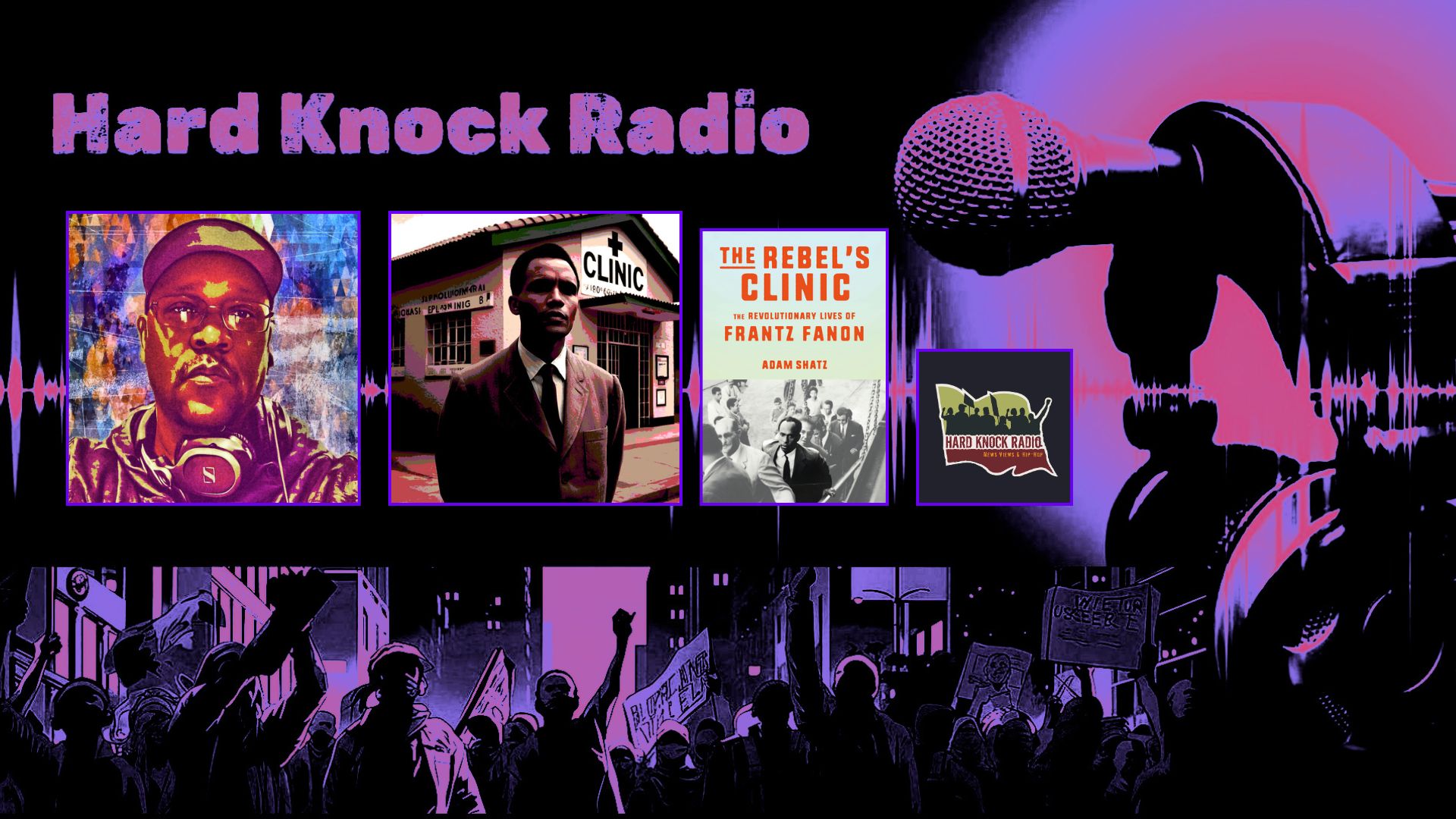On a recent episode of Hard Knock Radio, host Davey D engaged in a thought-provoking conversation with Adam Shatz, the US Editor of the London Review of Books, about his new book, “The Rebel’s Clinic: The Revolutionary Lives of Frantz Fanon.” This dialogue delved into the enduring legacy of Frantz Fanon, a revolutionary psychiatrist whose ideas continue to resonate in contemporary struggles against oppression.
The Enduring Legacy of Frantz Fanon
Adam Shatz shared his long-standing fascination with Fanon’s works, tracing back to his teenage years. Fanon’s groundbreaking book, “Black Skin, White Masks,” published at the age of 27, captivated Shatz early on. He recounted how, in 2001, he conducted interviews with individuals who knew Fanon, laying the groundwork for his biography. Fanon’s exploration of the psychological impacts of colonialism and internalized racism deeply influenced Shatz, shaping his understanding of these complex issues.
Psychological Impact of Colonialism and Racism
Shatz elaborated on Fanon’s insights into colonialism’s psychological toll, drawing connections between Fanon’s studies and contemporary issues like implicit bias. He noted how Fanon’s readings, including Cheikh Lôbjobè’s “Vehicle du Noire” and Fanon’s second book on Algerian society during the revolution, informed his understanding of racism. Shatz also touched on a chapter in his book that explores Western medicine’s entanglement with racist ideas, highlighting its relevance to the Black Panthers’ experiences. This led to a discussion on Fanon’s awareness of scientific racism in the US. Shatz clarified that while Fanon might not have been fully aware of specific aspects of scientific racism in the US, he grasped the broader concept of biological racism.
Decolonization and the Role of Armed Struggle
The conversation then turned to the complexities of decolonization and the role of armed struggle. Shatz and Davey D examined the challenges faced by newly decolonized countries, including the rise of native elites and external interference by powers like the CIA. They discussed the philosophies of violence and non-violence within decolonization movements, comparing experiences in different regions, such as Algeria, where the colonized population was a numerical majority.
Methods of Struggle and Identity
Shatz and Davey D explored the historical context and effectiveness of various struggle methods. Shatz argued that violent methods are not always the most effective, especially when a minority group adopts them. They discussed notable figures like Malcolm X and the Black Power movement, highlighting their ideas about violence, identity, and power. The discussion also touched on Martin Luther King Jr.’s later radical views and his recognition of the inevitability of violence in oppressed urban communities.
Martin Luther King Jr.’s Nuanced Views on Violence
Shatz elaborated on Martin Luther King Jr.’s nuanced perspectives on violence and oppression. He highlighted King’s belief in the strategic and psychological benefits of self-defense, emphasizing that it should not stem from hatred or identity politics. King acknowledged the complexity of the fight against oppression, stressing the importance of differentiating between legitimate targets and those supporting independence. Davey D resonated with Shatz’s points, adding depth to the conversation.
Fanon’s Role in the Algerian Revolution
The discussion then focused on Fanon’s involvement in the Algerian revolution and the tensions within the revolutionary movement. Shatz compared Fanon’s story to works like “One Hundred Years of Solitude” and its influence on West Indian poetry in French. They delved into the philosophy and actions of figures like Aimé Césaire and Léopold Sédar Senghor, discussing the impact of colonialism, the role of violence in resistance, and the concept of black consciousness.
“The Rebel’s Clinic” and Fanon’s Early Influences
Shatz and Davey D discussed “The Rebel’s Clinic,” with Davey D expressing his intention to feature the book on his radio show. Shatz corrected a misunderstanding about the book’s structure, confirming it is divided into five parts, not three. They explored Fanon’s early influences, including his upbringing in Martinique and his realization of his African heritage. Shatz highlighted Fanon’s attempts to join the French forces at 17 and his family’s political beliefs, which shaped his views on the bourgeoisie, elites, and French colonialism.
Fanon’s Visit to Congo and the Algerian Delegation
The conversation concluded with a discussion about Fanon’s visit to Congo during the crisis involving Patrice Lumumba. Shatz emphasized Fanon’s role in representing the Algerian delegation during this critical time, underscoring Fanon’s exceptional yet complex character as a thinker, activist, and humanist.
The insightful exchange between Davey D and Adam Shatz on Hard Knock Radio provided a profound exploration of Frantz Fanon’s revolutionary life and enduring legacy. Their discussion illuminated the complexities of decolonization, the psychological impacts of colonialism, and the ongoing relevance of Fanon’s ideas in contemporary struggles against oppression.


Leave a Reply